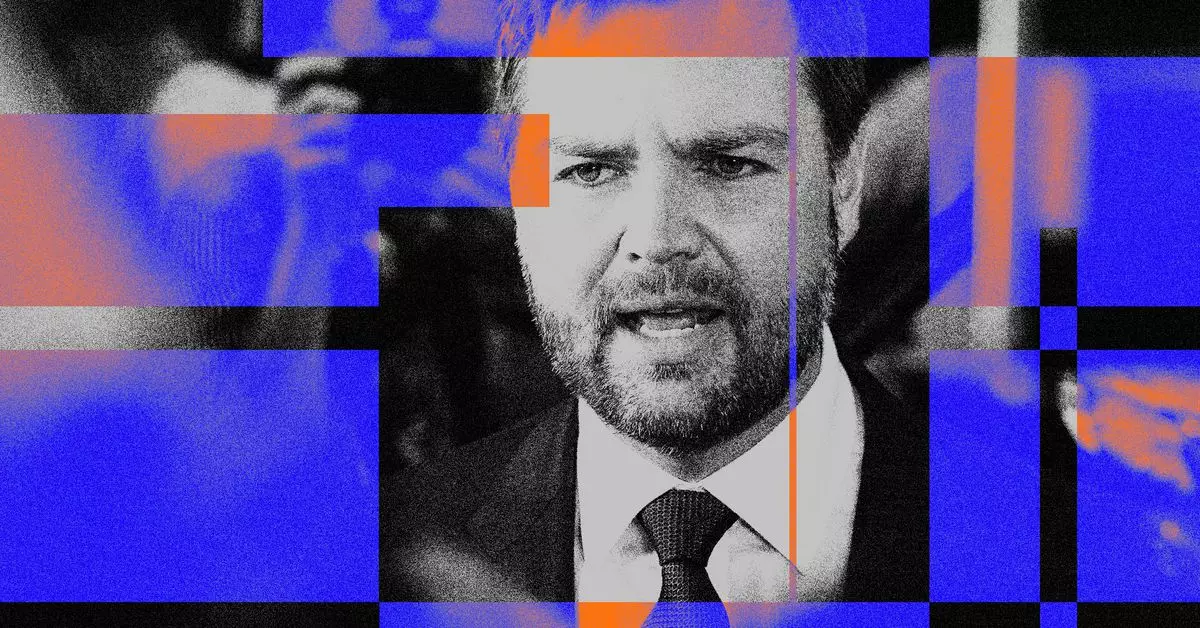In an era dominated by digital communication, the line between free expression and the necessity for moderation becomes increasingly blurred. Recently, Meta has taken a firm stance against the dissemination of potentially compromised information linked to Ken Klippenstein’s newsletter, which reportedly contains an investigative dossier about JD Vance. This dossier is alleged to have been acquired through a foreign cyber intrusion targeting the Trump campaign, adding layers of complexity to the broader discussion about information sovereignty and electoral integrity.
Meta’s choice to restrict access to this document on platforms like Threads, Instagram, and Facebook raises significant questions about the responsibilities of large tech companies in moderating content, especially when it comes to information that might appear to be the result of foreign interference. A spokesperson for Meta articulated this rationale, alluding to their Community Standards that explicitly prohibit sharing materials from hacked sources. This approach aims to maintain the integrity of U.S. elections, but it inevitably opens up discussions on transparency and censorship.
The removal of posts containing the link to Klippenstein’s Substack drew immediate criticism, as many users took to social media to express their discomfort with what they perceive as overreach. Posts have been reportedly stripped of their links, prompting some users to creatively manipulate text or use QR codes in an effort to circumvent these restrictions. Such measures highlight a growing tension between the platforms and their user base, who feel entitled to access and share information—even when that information may be linked to questionable sources.
Moreover, the dynamics observed on Meta mirror similar actions taken by competing platforms such as X (formerly Twitter), creating a collective environment where content that strays from the mainstream narrative is systematically targeted. This trend raises concerns over the self-regulatory powers of social media platforms, suggesting a monopoly over which narratives gain traction in public discourse.
It’s crucial to consider the implications of these actions not just from a content regulatory standpoint, but also in the context of civil liberties and the democratic process. Restrictions on information inherently challenge the cornerstone of open dialogue and debate, which are fundamental to a functioning democracy. When corporations like Meta dictate what can and cannot be shared, they wield significant power over the public narrative, potentially stifling dissenting opinions or controversial insights that could come from unfiltered discussions.
In this case, the question lies in whether Meta’s interventions are justified as protective measures or if they act as barriers to free speech. Should the public trust these platforms to navigate the murky waters of information integrity effectively, or does this incursion into content moderation signal a need for greater accountability and transparency in how social media networks operate?
As discussions intensify around information handling in the digital age, the challenge for Meta and similar companies lies in finding a balance. They must navigate the fine line between protecting users from harmful misinformation and ensuring an unbridled space for diverse perspectives and narratives. The ongoing saga of the JD Vance dossier offers a critical lens into these broader challenges, illustrating how the actions of these tech giants could reshape the future of both online communication and democratic engagement. It is a crossroads moment that could define the future of online dialogue, activism, and accountability in a rapidly changing digital landscape.


Leave a Reply